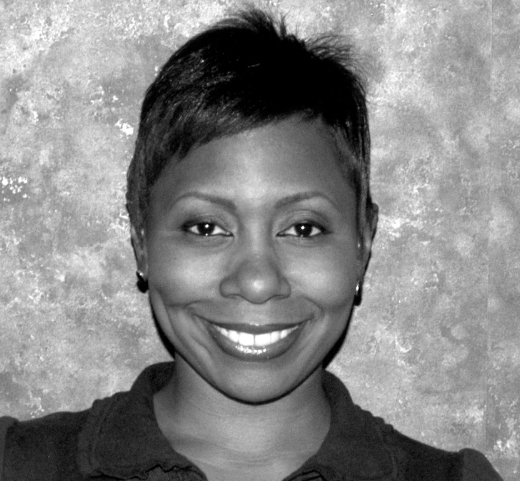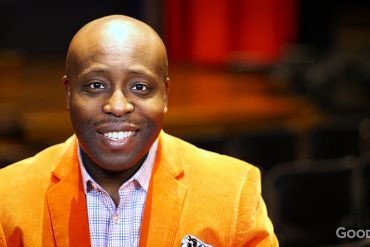Since 1986, Court Appointed Special Advocates (CASA) of Cook County has been training everyday people to stand up for children who have experienced abuse and neglect in an overwhelmed and extremely under-resourced foster care system.
CASA works to diminish the challenges faced by children in foster care by recruiting, training, and supervising community volunteers who advocate for the best interests of children in court and who strive to ensure that children leave the system to live in safe, permanent homes.
Dr. Bonita Carr sat with N’DIGO recently and discussed her role as Executive Director of CASA and how volunteers are trained to advocate for a child in the foster care system. She also talked about CASA’s Annual Gala fundraiser to be held on October 23, 2019.
N’DIGO: How did you become interested in education?
Dr. Bonita Carr: During my graduate studies program at the University of Massachussetts at Amherst, I was studying labor relations and some of the prerequisites coincidentally were education courses. I became enamored with the history of education and its impact on the personal, social, and economic development of the nation, particularly for African Americans.
Professor Ernest Washington was the conduit for my new-found passion in education. His classes were engaging, challenging and eye-opening regarding the inequality of education for African Americans. I firmly believe that this subject intrigued me because of my own experience with education as a Black girl attending a public high school in Chicago.

I was clearly able to relate to the lack of resources, curriculum and skilled teachers at my school. I was not fully prepared for college and subsequently attended a summer bridge program to enter into undergraduate studies at the University of Illinois at Urbana Champaign. Interestingly, the entire summer bridge program consisted of students of color.
Subsequently, I had to work twice as hard as my white counterparts because I was not exposed to the classics that they read in elementary school and high school, nor did I have advanced classes. The enlightment of education being a civil rights issue ignited me to take more graduate education classes and thus, I was given an opportunity of a lifetime to continue my graduate studies at the Doctoral level with a full fellowship.
You are a consultant throughout the United States on urban education. What are the common issues?
The common issues facing urban education in the United States are those that has plagued our community for over 50 years. They include persistently low student achievement, a lack of instructional coherence, disciplinary policies, inexperienced teaching staff, poorly functioning business operations and low expectations of students.
As the Executive Director of CASA, what are your goals and who are your clients?
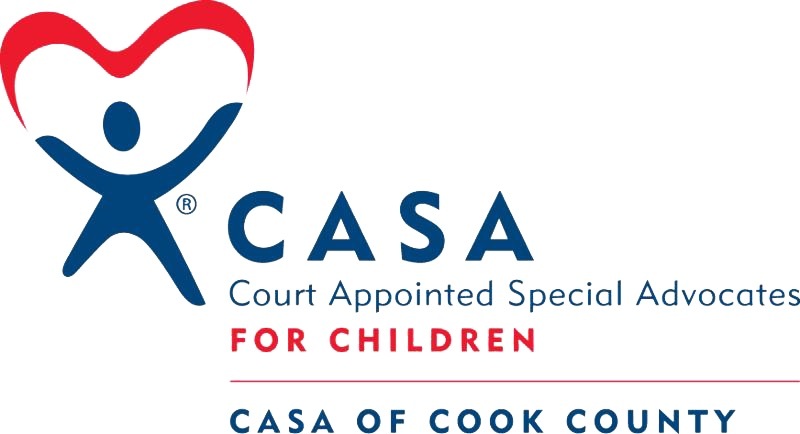
My goal is to leave no foster child behind. As the Executive Director of Court Appointed Special Advocates of Cook County, it is my duty and assignment to see that the over 5,700 children from birth to 18 years of age in Cook who are currently in foster care have their best interests advocated for.
It is imperative that a child who has been uprooted from the only family that they know and love and is placed in a foreign home (foster care) has a consistent, caring adult who advocates for their best interest. That can make a lasting difference for a child who’s been neglected or abused.
Best-interest considerations in each case include health, safety, day-to-day care, and emotional ties. It is also important that these children receive the resources that they need while they are going through the court process.
My focus is to change this child’s story by ensuring that they are placed in a loving, safe, and permanent home. Our best interest advocacy is driven by the guiding principle that children grow and develop best with their family of origin, if that can be safely achieved. Most children who leave foster care do so to return to their family.
For seven years you were the National Director of PUSH Excel, founded by Rev. Jesse Jackson. What were your greatest accomplishments in that role?
Anyone who has ever been in a leadership position in Rev. Jackson’s organization knows that he pushes you to do so much that it is hard to identify several things. It was truly an honor and privilege to work with a living civil rights legend such as Rev. Jackson, who has opened so many doors for African Americans to walk through in business and gain access to capital. That being said, my accomplishments while in that role were advocating for fairness regarding zero tolerance policies that overwhelmingly harmed African-American children.
One of the greatest threats to African-American children receiving an equitable education is school disciplinary policies that actively or subconsciously target African-American children and push them out of the classroom. I had the honor of advocating for several of these cases in Illinois and never lost a case. That meant that one less African-American student was uprooted from their school because of this policy and subsequently placed in an alternative school.
Being the conduit to lead the way to bring resources into underfunded urban schools via a “tale of two schools” was also remarkable. Lastly, setting the parameters for corporate social responsibility with Toyota and New York Life insurance by establishing National Push excel scholarships that has given out over a million dollars to hundreds of students across the country was a great accomplishment. So was exposing students to Black institutions of higher learning through the Historically Black Colleges and Universities tour.
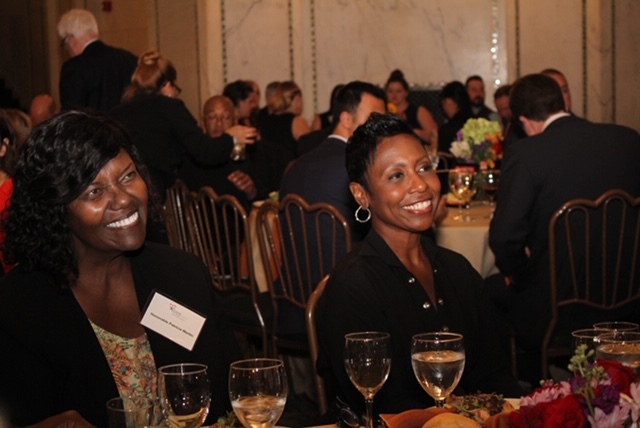
Talk about “A Tale of Two Schools” and how Oprah Winfrey became involved.
A “Tale of Two Schools” highlighted the gross inequity that exists amongst urban funded schools and suburban schools. This tour was put on to show community members that inequity is alive and well in our 21st century. The two schools that we highlighted were Harper High School and New Trier. Harper was an inner city school located in the heart of Englewood in Chicago.
The tale of that school showed that Harper, with a majority population of African-American, low-income students, did not have an operating swimming pool in 10 years. The school was dingy, with outdated resources including books, computers, lab equipment, weight room, basketball hoops etc.
The school also did not have more than five advanced courses that students could take. Interestingly, when the white students visited Harper many commented that they would drop out if they had to attend a school such as this. They were mortified by the conditions of the school.
On the other hand, when students and community people visited New Trier, they were astonished that they were not met with security at the door. The school was updated and beautiful. Sadly, one of the students from Harper high school started rolling on the carpet because it was so clean and stated that she could live there.
New Trier had an overabundance of everything that was conducive to learning. They had new updated computers, labs, books, and equipment. They also had over 20 advanced courses that they offered to their students. The stark contrast was undeniable and unbelievable.
These tours were documented by our TV stations ABC/7 News, NBC and CBS. One of Oprah’s producers saw the footage and reached out to Rainbow/PUSH. Oprah Winfrey, during the height of her success, dedicated a show about inequity of funding for urban schools versus suburban schools. The success of the tour was that Harper’s swimming pool was fixed after 10 years, the weight room was furnished with new equipment, Harper got new books and computers, and the school was repainted.
Talk about the annual Gala of CASA.
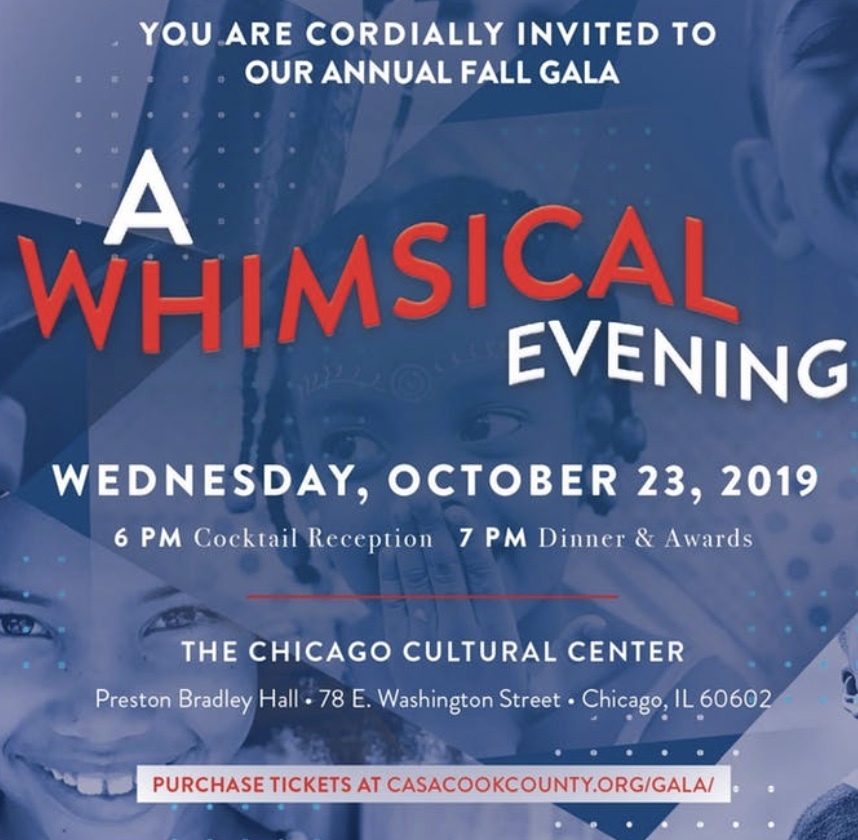
Our Annual CASA Gala will be held on October 23, 2019 at the historic Chicago Cultural Center. This gala is our largest organizational fundraiser. Tickets or financial donations can be made at www.casacookcounty.org. Funds from this event allow us to advocate for more children.
The significance of this gala is that it also allows us to celebrate the backbone and heartbeat of our organization – our advocate volunteers. This year we will celebrate four advocate volunteers who have a combined 42 years of service. We will also honor Presiding Judge Patricia M. Martin of the Cook County Child Protection Courts and Diana Palomar from ABC/7 News.
What does a CASA volunteer do?
There are many organizations that help with the plight of child welfare, but only one empowers everyday citizens as appointed officers of the court to advocate for a child who has experienced abuse or neglect. A CASA Court Appointed Special Advocate is appointed by a judge to serve as the ongoing link “advocate” for a child in foster-care.
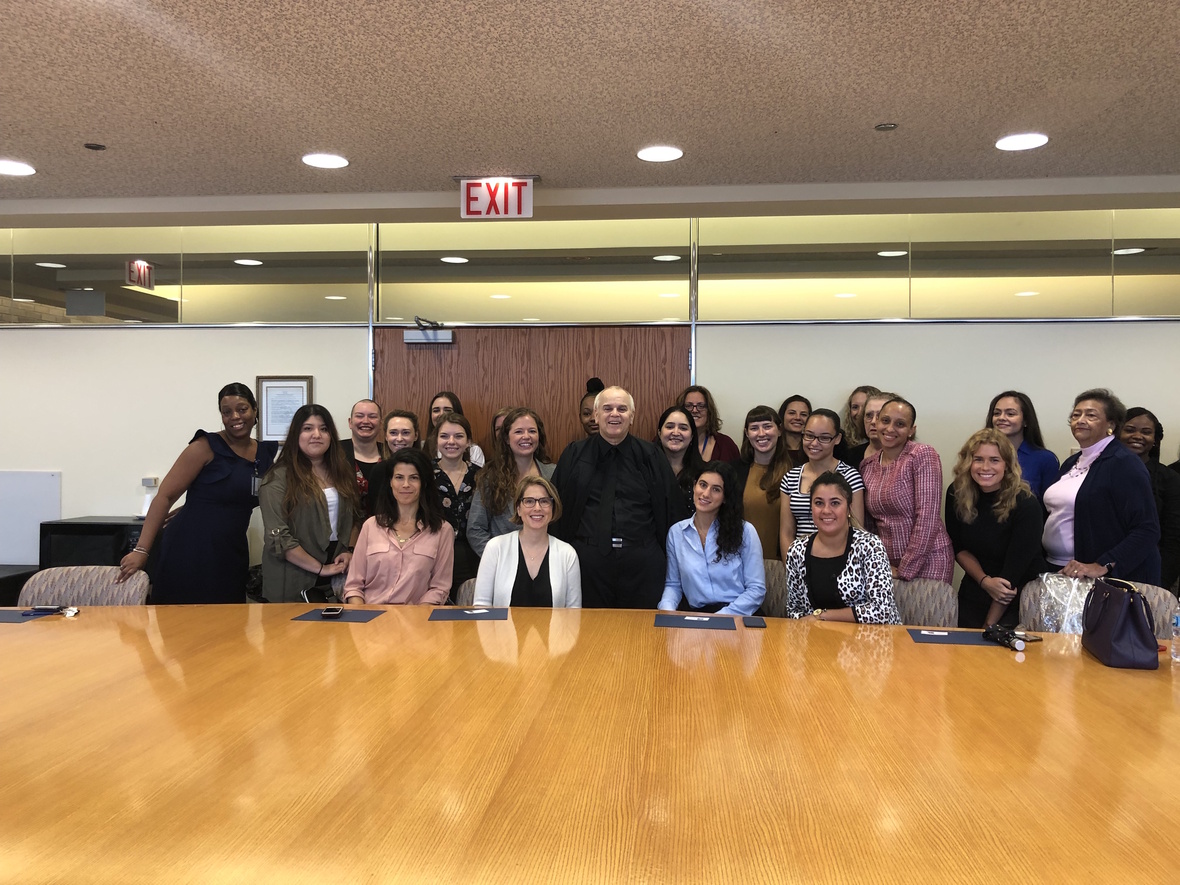
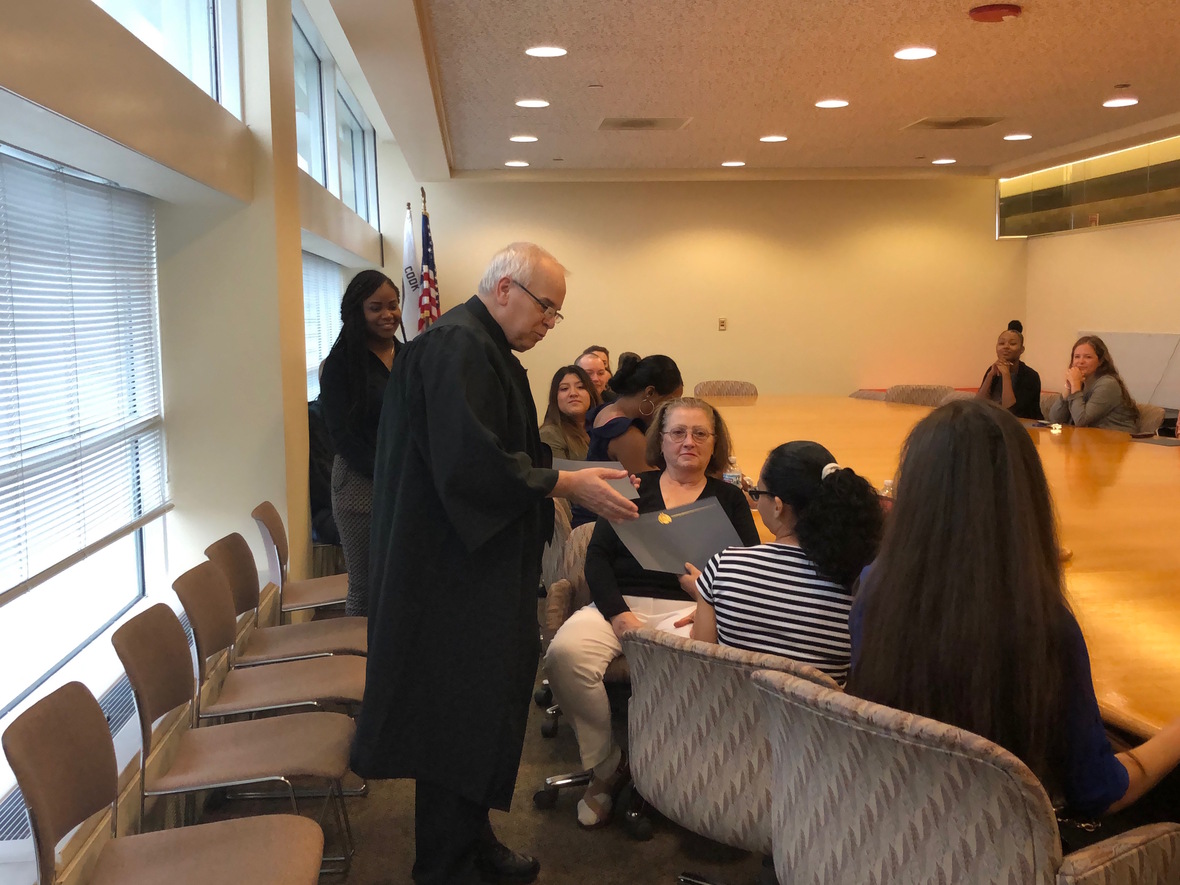
Our volunteer advocates help judges develop a fuller picture of each child’s life. Volunteers work with legal and child welfare professionals, educators and service providers, to ensure that judges have all the information they need to make the most well-informed decisions for each child. Each volunteer receives more than 30 hours of training before they work with a child, with an additional 12 hours of continued education required annually. Volunteers receive ongoing support to help them advocate effectively on a child’s behalf.
What gift would you give all the children of CASA?
The gift of a safe, permanent home.
Who is your favorite musical artist?
I love good music. My favorite artists are Whitney Houston and Aretha Franklin.
What do you like most about Chicago?
I love the lakefront of Chicago. No other city compares. I bike, run and walk on the lakefront. It’s also a place where you can sit out and read.
If you were hosting a dinner party for six, whom would you invite?
If I had the honor to host six individuals, I would invite Oprah Winfrey, Beyoncé, Michelle Obama, Bryan Stevenson, Michelle Alexander, and Serena Williams. These individuals dominated and excelled in their respective lanes or brought attention to social justice issues.
Who do you most admire?
I most admire Harriet Tubman. I have admired Harriet Tubman since I was small girl. She resonates deeply with me because she had the courage to fight for her people and rescue them. She made 13 trips to rescue slaves. It was not enough for her to just be free!
She was strong in every sense of the word. She went against the grain and won. She never lost a slave. Often times, when I have to go to battle regarding issues of disparity and inequity on behalf of our community, it is Harriet Tubman that I think about it. What she did was 100 times harder than what I am facing and thus, I push on.
